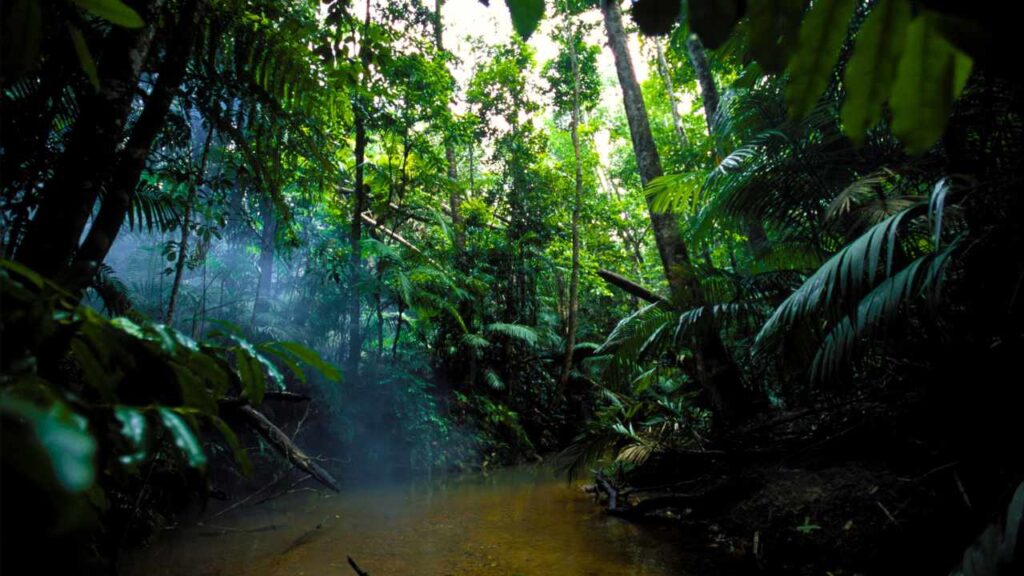A call to reflect and act on the critical environmental issues shaping our present and future
The environment is the foundation of life on the planet. It provides the natural resources essential for human survival, such as water, air, food, raw materials, and energy, in addition to harboring immense biodiversity that sustains the balance of ecosystems. Environmental conservation is, therefore, a fundamental pillar for public health, food security, economic development, and the well-being of present and future generations.
World Environment Day, celebrated annually on June 5, was established by the United Nations in 1972. Its purpose is to raise global awareness of the major environmental challenges.
The date encourages governments, institutions, and the general public to reflect on and take action regarding urgent issues. These include land degradation, pollution, climate change, biodiversity loss, and the unsustainable use of natural resources.
How Environmental Degradation Affects Ecosystem Services?
Deforestation, improper soil management, loss of organic matter, compaction, and erosion are factors that degrade the soil. These conditions hinder the sequestration of atmospheric carbon, intensifying greenhouse gas emissions.
Such processes weaken vital ecosystem services, such as climate regulation, soil fertility, and the balance of natural cycles. This directly threatens the sustainability of ecosystems and human well-being.
Therefore, soil quality has a direct impact on public health, food security, the availability of clean water, and climate stability. The degradation of natural resources disproportionately affects the most vulnerable populations.
Paths to Restoration: Practices and Policies to Reverse Soil Degradation
Among the possible measures to mitigate the problem are:
● Adoption of conservation management practices: No-till farming, crop rotation, and permanent soil cover promote the increase of organic matter and soil structuring.
● Restoration of degraded areas: Techniques such as reforestation, the use of native species, and agroforestry systems help reestablish the ecological functions of the soil.
● Rational use of agricultural inputs: Prioritizing biological alternatives and organic fertilization, which benefit the soil microbiota.
● Implementation of integrated production systems: Systems like Crop-Livestock-Forestry Integration (CLFI) optimize land use and promote synergies between agricultural, livestock, and forestry components.
● Environmental education and training of rural producers: Emphasizing the sustainable management of natural resources and the importance of soil as a strategic asset for the future.
● Government incentives and effective public policies: Recognizing soil as a natural heritage is essential. Financially supporting practices aimed at restoring critical areas is fundamental. These practices help increase carbon stocks.
● Strengthening environmental education: Promoting awareness of the importance of natural resources is essential. It encourages both individual and collective behavioral changes, which are key to building more sustainable and climate-resilient societies.
● Encouraging citizen participation in the development of effective public policies: Including society in decision-making processes strengthens environmental democracy. This ensures that public policies reflect the real needs of communities and incorporate more legitimate and impactful sustainable solutions.
What is the role of science in this context?
Science helps us understand how human actions affect the environment and provides tools to monitor and respond to these changes.
Through research and technical evidence, it is possible to develop innovative solutions, guide the formulation of public policies, and promote development models that reconcile economic growth with environmental conservation.
In this context, researchers from CCARBON/USP have been studying topics such as the restoration of degraded areas, carbon sequestration, soil health, and their connections to ecosystem services, among others.
The integration of scientific knowledge and decision-making is essential to ensure the sustainability of ecosystems and the well-being of future generations. In parallel, raising awareness about the importance of environmental preservation is a crucial step toward building a more balanced and resilient society.
Understanding that the environment sustains all forms of life is key to recognizing our dependence on natural systems. Its degradation directly impacts human health, the economy, and quality of life—making environmental awareness vital to driving effective change.
Therefore, fostering knowledge, collective engagement, and shared responsibility helps build a culture of sustainability. This culture is essential for addressing environmental challenges and ensuring better conditions for future generations.
_______________________________________________________________________
References:
Cherubin, M. R., Carvalho, M. L., & Rodrigues, M. Saúde do solo: entendendo os conceitos, relevância e suas aplicações na agricultura e meio ambiente. Informações Agronômicas Nutrição de Plantas, n. 18, p. 15-23, 2023.
dos Reis Oliveira, P. C., Gualda, G. A. F., Rossi, G. F., Camargo, A. F. M., Filoso, S., Brancalion, P. H., & de Barros Ferraz, S. F. Forest restoration improves habitat and water quality in tropical streams: A multiscale landscape assessment. Science of The Total Environment, v. 963, p. 178256, 2025.
Ruiz, F., Safanelli, J. L., Perlatti, F., Cherubin, M. R., Demattê, J. A. M., Cerri, C. E. P., Otero, Xosé Luis., Rumpel, Cornelia., Ferreira, Tiago Osório. Constructing soils for climate-smart mining. Communications Earth & Environment, v. 4, p. 219, 2023.
Pinheiro Junior, C. R., Carvalho, J. L. N., Canisares, L. P., Bordonal, R. D. O., Cerri, C. E. P., & Cherubin, M. R. Bioenergy Production From Sugarcane Straw: Implications for Soil‐Related Ecosystem Services. GCB Bioenergy, v. 17, n. 5, p. e70032, 2025.
Word Enviroment Day. Disponível em < https://www.worldenvironmentday.global/ >. Acesso em: 06/05/2025.
By: Nayana Alves Pereira, CCARBON/USP
How to cite this article:
Pereira, N.A. The Importance of the Environment for Global Sustainability. CCARBON/USP, 2025. Available at: <LINK>. Accessed on: DATE






